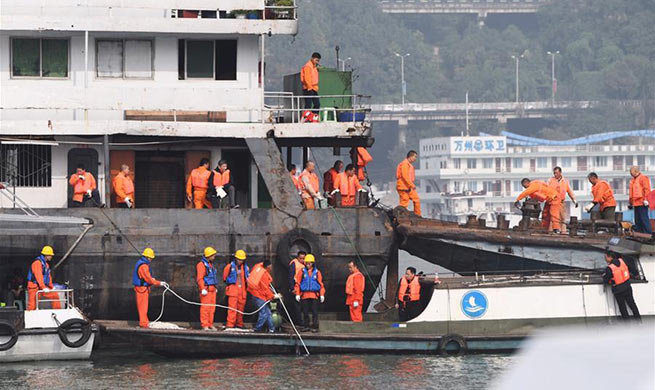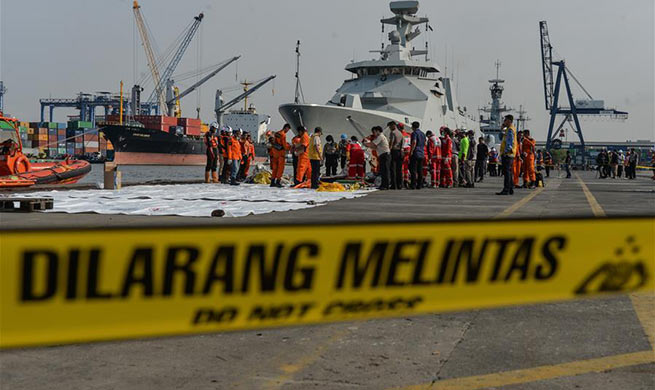KAMPALA, Oct. 30 (Xinhua) -- With support from the World Health Organization (WHO), Uganda's Ministry of Health has started training health workers in the military on surveillance and clinical management of the deadly Ebola hemorrhagic fever.
According to a statement released by the WHO Monday, when Uganda had its first Ebola outbreak in 2000, the armed forces have always been part and parcel of the country's response strategy and activities.
The global health body said that as the Ebola situation continues to worsen in neighboring Democratic Republic of Congo (DRC), the military will be part of the response plan if the disease spreads to Uganda.
"The training provides an opportunity to build their capacity to be able to effectively detect, investigate, and report suspected Ebola cases," the statement said.
"They will also be equipped with skills in principles of managing Viral Hemorrhagic Fevers (VHF) including management of suspected or confirmed cases of Ebola patients, and provision of psychological support and infection prevention and control," it added.
The organization said the training comes in the wake of increasing Ebola cases in the DRC where 267 cumulative cases with 170 deaths had been recorded by Oct. 28.
"The epicenter for the current outbreak is close to the very porous Uganda-DRC border which makes importation of cases highly likely," the WHO said. "Additionally, communities at the border are closely linked through kinship, culture, religion and even trade making close interaction a daily occurrence."
The five-day training conducted in the central region district of Mukono follows similar ones that the WHO and the Ministry of Health have conducted in the high-risk districts of Bundibugyo, Bunyangabu, Kampala, Kabarole, Kasese, Hoima, Kikuube, Ntoroko and Wakiso in which over 100 health workers have been trained on Ebola.
The Ebola virus is highly contagious and causes a range of symptoms including fever, vomiting, diarrhea, generalized pain and in many cases internal and external bleeding.
Mortality rates of Ebola fever, according to the WHO, are extremely high, with the human case-fatality rate ranging from 50 percent to 89 percent, depending on viral sub-type.












